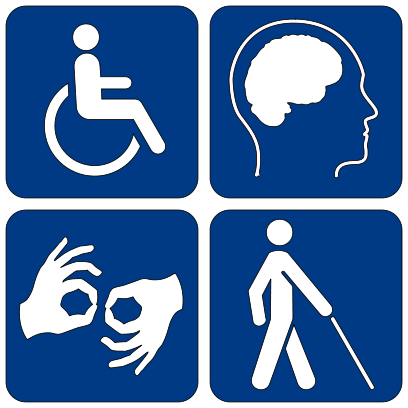Double track system not disability friendly – PWDs
 Persons with disabilities (PWDs) in the Central Region have described the double-track Senior High School (SHS) system as unfriendly and inconsiderate to the plights of children with disabilities.
Persons with disabilities (PWDs) in the Central Region have described the double-track Senior High School (SHS) system as unfriendly and inconsiderate to the plights of children with disabilities.According to them, the inability of the Ministry of Education to broadly engage them to seek their views on its implementation was an affront to the development of children with disabilities in the country.
Nana George Frimpong, Regional President of PWDs expressed these concerns in an interview with the Ghana News Agency in Cape Coast on the side-lines of a Regional dialogue on education policy in Ghana.
He explained that PWDs were confronted with challenges like lack of professional sign language teachers, standard infrastructure and teaching and learning aids to enhance academic work.
Nana Frimpong cited other challenges such as lack of dedicated teachers, recording devices, audio textbooks, Braille and laptops, as bane to the achievement of their dreams.
The rest were limited access to education, stigmatization, social exclusion, negative socio-cultural perception and poverty.
“Currently, there are no professional sign language interpreters in our segregated SHSs in the region because the government cannot employ them so where will they get the teachers for the double track system. We would have given them detailed information about this reality if they had consulted the Federation,” he said.
Mr Frimpong also noted that there were no SHS in the region with the requisite capacity to admit persons with disabilities and added that many PWDs have failed severally to get admission into Winneba SHS, which is the only accredited centre for PWDs in the region.
He bemoaned the low commitment on the part of government to the implementation of the national inclusive education policy, which came into force in 2016 to create an equal environment for all children, including those with special needs and disabilities.
Children with disabilities were mostly not accepted into mainstream schools because they did not have facilities to support them, making teaching and learning difficult for them.
Its successful implementation, he said would establish infrastructure for PWDs Schools while providing adequate tools that will enhance the learning abilities of these children to achieve their aspirations in life.
He also expressed concern that rehabilitation centres lacked the requisite facilities and had therefore resorted to the use of outmoded teaching layouts, which was negatively affecting their training.
He called for the retooling of shall rehabilitation centres established to train person’s with disability to provide them with skills to improve their livelihoods.
Source: GNA
